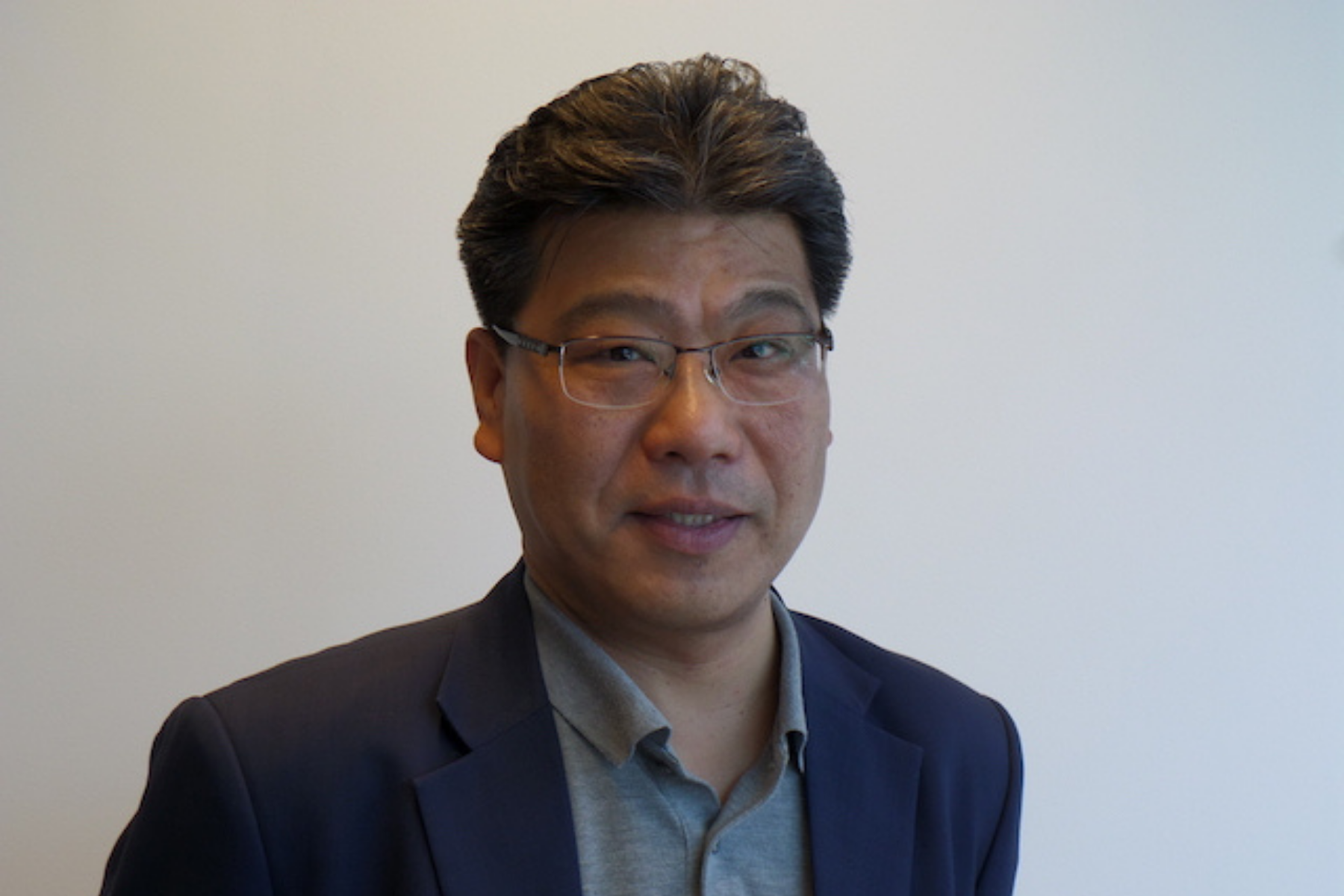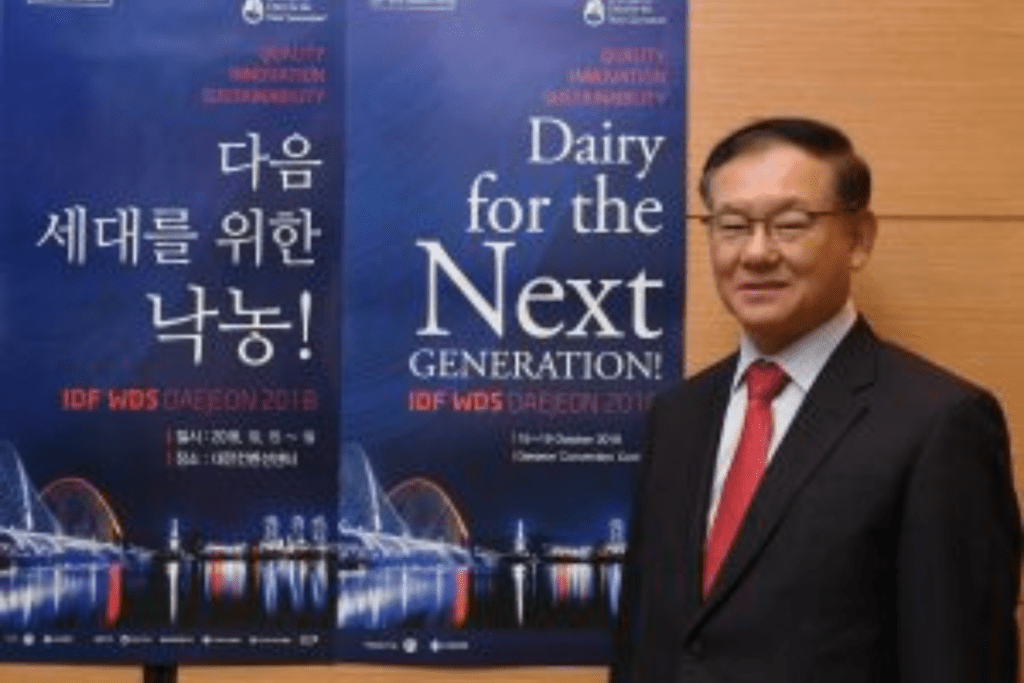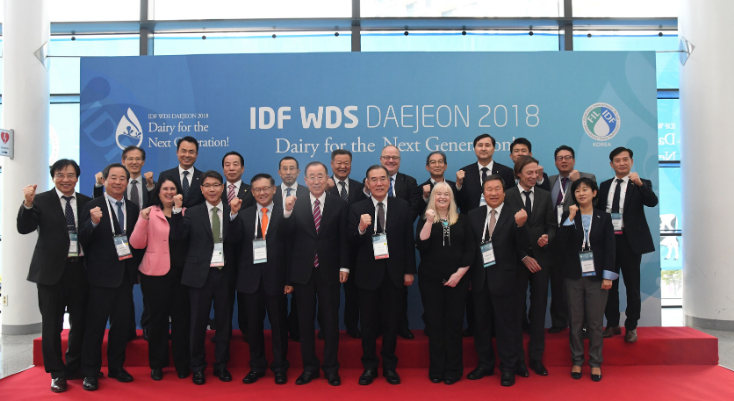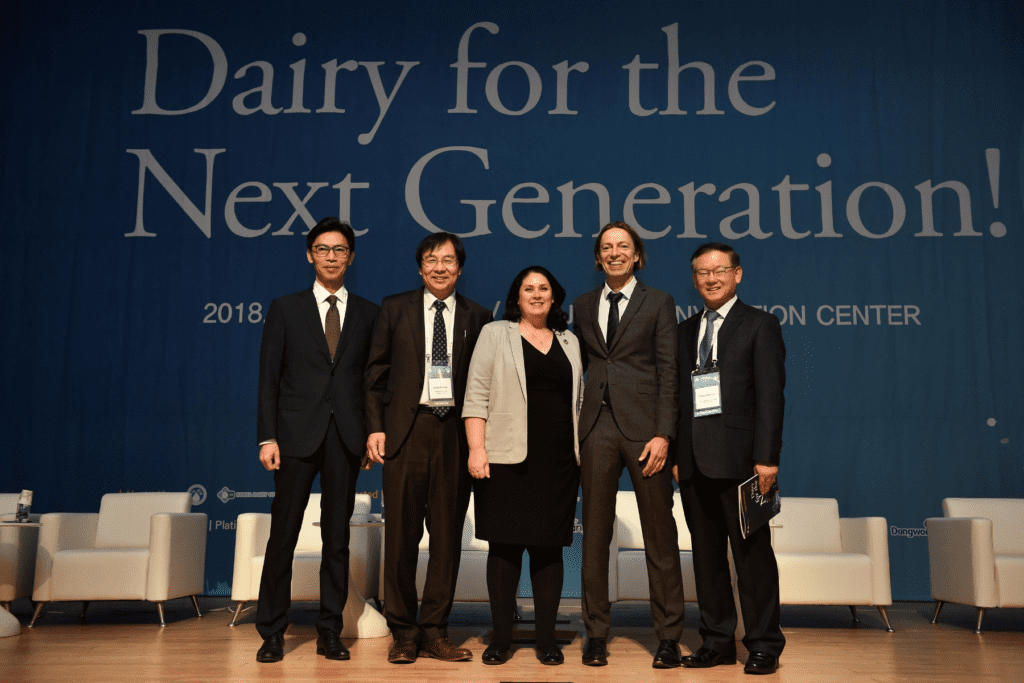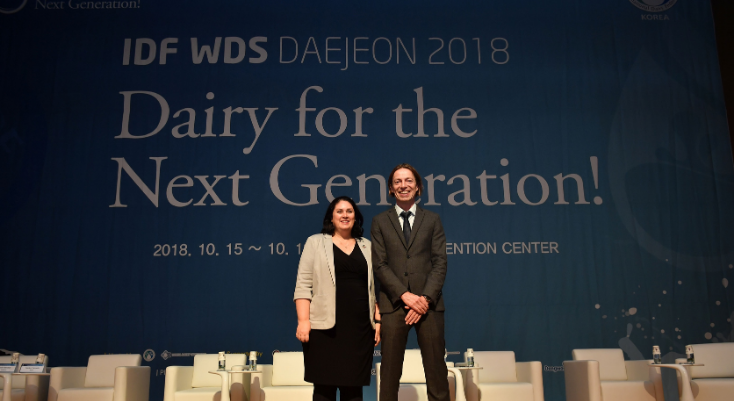The South Korean dairy sector can benefit from global expertise and the exchange of ideas about technology, innovation and new developments at the IDF World Dairy Summit 2018 in Daejeon.
The annual event is being hosted by South Korea for the first time, bringing together more than 1,500 delegates from around the world.
“It’s an excellent opportunity for networking, making useful contacts with key people in the dairy sector from countries around the world,” said Mr Son Byung Gab, IDF South Korea National Committee Secretary. “These interactions are valuable.”
Mr Son, who is involved in the organizing committee of the IDF World Dairy Summit 2018, said the dairy sector in South Korea is growing, and there is a keen interest in tapping knowledge and experience from market leaders.
“We have 5,400 dairy farms which produce about 2 million metric tonnes of milk annually, but this is still insufficient to meet local demand, which is close to double that of production output,” Mr Son explained. “We are constrained by the lack of land for dairy farming and high labour costs which narrow the profit margins, so we need to rely on imports largely from the US and EU, which are cheaper, due to free trade agreements.”
South Korea’s farm-gate prices are among the highest in the world due to a unique raw milk pricing system. This system provides a guarantee which covers the production costs incurred by dairy farmers, as well as inflation. As a consequence, farmers tend to be complacent and not invest in innovation to enhance efficiency and outputs.
Mr Son said it is important for South Korean farmers to boost productivity and supply management through R&D to become more competitive in order to meet the growing demand for dairy due to changes in lifestyle. He explained that the interest by Koreans in western cuisine, which often includes milk as an ingredient, has increased milk consumption which stands at 76.4 kg per capita annually. The popularity of pizzas, hamburgers and sandwiches, also increases cheese consumption, Mr Son added.
Cheese imports into South Korea totalled 110,000 metric tonnes in 2016, compared to 50,000 metric tonnes in 2007.
The dairy processing industry is the third-largest food processing industry in South Korea after alcoholic drinks manufacturing and wheat processing.
“We have the potential to grow our dairy sector to increase our share of the pudding, particularly in East Asia,” Mr Son stated.
Find out more about the IDF World Dairy Summit 2018 at http://www.idfwds2018.com/html/registration.php




